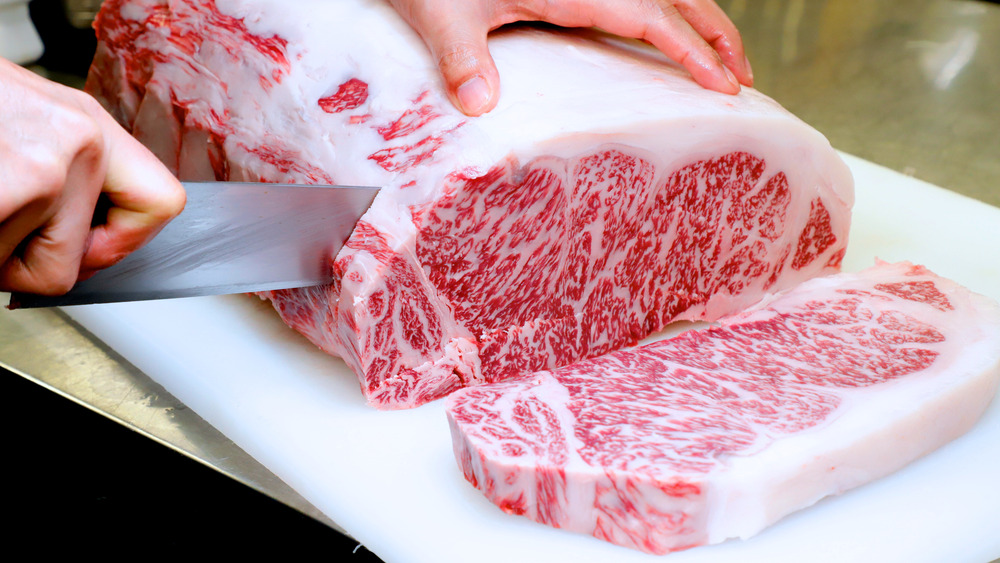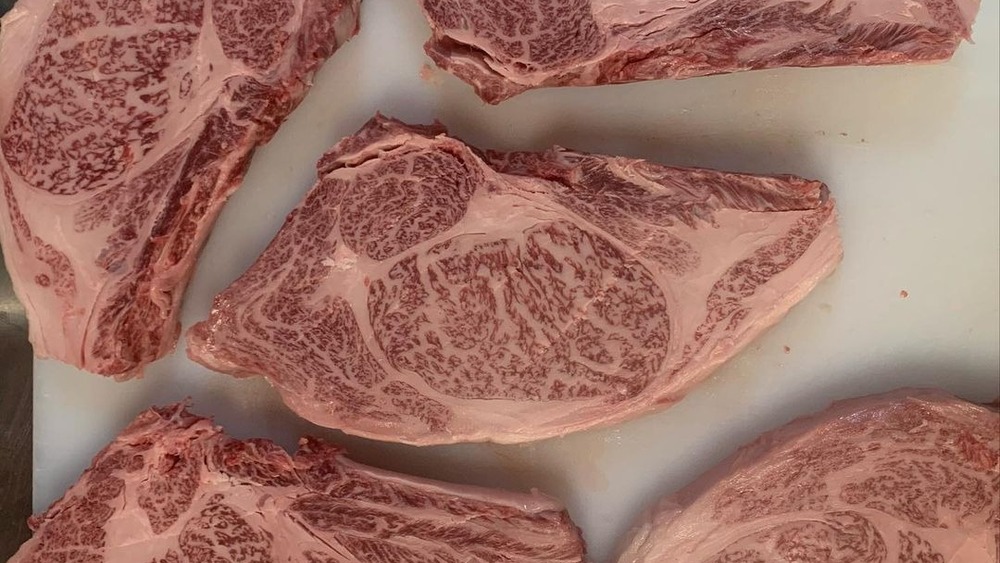What Is Snow-Aged Wagyu And What Does It Taste Like?
You can add another item to your beef-themed bucket list: snow-aged Wagyu. Japanese Wagyu beef, which can only come from one of four native cows, is already a top product among chefs and gourmands worldwide for its highly marbled, buttery texture and one-of-a-kind flavor (via the American Wagyu Association). Aging the beef in a snow-covered structure called a yukimuro, though, results in a cut that's even sweeter, silkier, and richer, according to the Michelin Guide, making it one of the most exclusive Wagyu varieties in the world.
The Japanese food storage and preservation practice of snow-aging dates back to 200 years ago in the snowy region of Niigata. Residents of the region most commonly use yukimuro to store produce; the snowy surroundings and cold temperature (between 32 and 41 degrees Fahrenheit) cause carrots and other vegetables to retain more humidity and become naturally sweeter and crisper. The technique has also been successfully applied to grains, coffee, and sake. But only one person has tried it with Wagyu.
How snow-aging affects Wagyu beef
Takashi Uono began selling snow-aged Wagyu in 2012, and his business, Uoshoku Co., is still the only place that makes it, Bloomberg reports. Uono experimented with different wet-aging periods and found that after 30 days in a yukimuro, the beef becomes moist and tender (thanks to the breakdown of fibers caused by oxygen), while its flavor grows richer and more umami as proteins break down and spur the release of free amino acids, the Michelin Guide explains. And unlike electric refrigeration systems, a yukimuro "maintains a stable low-temperature, high-humidity condition," allowing the beef to age in a "stress-free" setting (via the Michelin Guide).
For now, there are only a few ways to try Uono's snow-aged Wagyu: for $158 at the Shangri-La Hotel's Origin Grill in Singapore or for about $300 via mail from the Allen Brothers. The meat is among the world's rarest and most expensive, but as New York chef Jonathan Benno told Bloomberg, it's "sweet, full of beefy flavor, with tenderness that has to be experienced at least once in your life."

